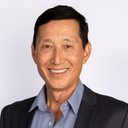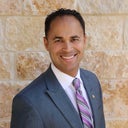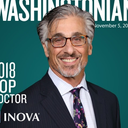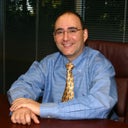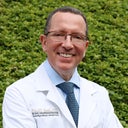At five months postop from a rhinoplasty, it is possible that you still have swelling in the distal portion of your nose, causing it to look crooked. As a specialist in rhinoplasty and revision rhinoplasty, I recommend that you monitor your situation closely with your surgeon. Your surgeon knows exactly what took place during surgery, and therefore is the best person to direct you. The literature on postoperative swelling states that it can take up to 12 months before all swelling subsides, although certain issues can make themselves known before this time. The job of a surgeon does not end with patients as soon as surgery is completed; rather, it is our duty (as well as passion, speaking for myself) to help patients through the entirety of the process, which includes the postoperative phase, no matter how long it takes. If your own surgeon does not reflect these values, you might want to meet with a board-certified plastic surgeon, preferably one who specializes in revision rhinoplasty, to discuss your concerns.
